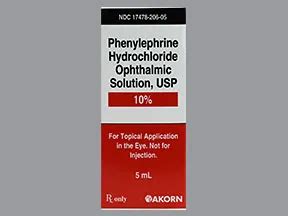Intro
Discover the potential risks of Phenylephrine, including common side effects like dizziness, headaches, and insomnia, as well as rare effects like arrhythmia and hypertension, to ensure safe usage and minimize adverse reactions.
Phenylephrine is a medication commonly used as a decongestant, which helps to relieve nasal congestion in the upper respiratory tract. It is often found in over-the-counter cold medications, either alone or in combination with other ingredients. While phenylephrine can provide temporary relief from nasal congestion, it is essential to be aware of its potential side effects. Understanding these side effects can help individuals make informed decisions about their health and discuss any concerns with their healthcare provider.
The importance of recognizing phenylephrine side effects lies in their potential to impact daily life and overall well-being. Some side effects may be mild and temporary, while others could be more severe and require medical attention. It is crucial for individuals, especially those with pre-existing health conditions or taking other medications, to be cautious when using phenylephrine. By being aware of the possible side effects, individuals can take steps to mitigate risks and ensure safe use.
Phenylephrine works by reducing the swelling of blood vessels in the nasal passages, which helps to improve breathing. However, its effects are not limited to the nasal area, as it can influence other parts of the body as well. This is why it's essential to consider the broader implications of using phenylephrine, including its potential side effects. Whether you're considering using phenylephrine for the first time or have been taking it for a while, understanding its side effects can help you navigate its use more effectively.
Introduction to Phenylephrine Side Effects

Common Phenylephrine Side Effects

Less Common but Serious Side Effects
Less common but more serious side effects of phenylephrine can include allergic reactions, severe dizziness, and heart problems. An allergic reaction to phenylephrine might manifest as hives, itching, swelling, or difficulty breathing. Severe dizziness can increase the risk of falls, especially in older adults. Heart problems, such as arrhythmias or increased blood pressure, can be particularly concerning for individuals with pre-existing heart conditions.Who is at Risk for Phenylephrine Side Effects?

Interactions with Other Medications

Managing and Preventing Side Effects
To manage and prevent phenylephrine side effects, it's essential to follow the recommended dosage and consult with your healthcare provider before starting the medication. Monitoring your blood pressure and heart rate regularly can help identify any adverse effects early. Additionally, maintaining a healthy lifestyle, including a balanced diet, regular exercise, and adequate hydration, can support overall health and potentially reduce the risk of side effects.Alternatives to Phenylephrine

Conclusion and Next Steps

We invite you to share your experiences or ask questions about phenylephrine side effects in the comments below. Your input can help others better understand the implications of using this medication and encourage a more open discussion about health and wellness.
What are the most common side effects of phenylephrine?
+The most common side effects of phenylephrine include headache, dizziness, nausea, stomach upset, and rapid or irregular heartbeat. These side effects are usually mild and temporary but can vary from person to person.
Who should not take phenylephrine?
+Individuals with certain health conditions, such as high blood pressure, heart disease, diabetes, and glaucoma, should use phenylephrine with caution and under the guidance of their healthcare provider. Additionally, pregnant or breastfeeding women, young children, and older adults should consult their doctor before taking phenylephrine.
Can phenylephrine interact with other medications?
+Yes, phenylephrine can interact with various medications, including blood pressure medications, MAOIs, beta-blockers, and tricyclic antidepressants. It's essential to inform your healthcare provider about all the medications you're taking to avoid potential interactions.
